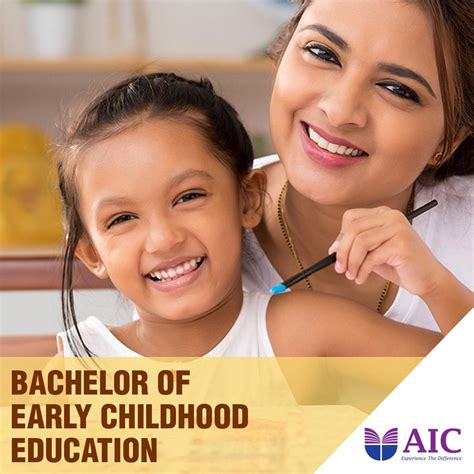What is an Associate in Education?
An Associate in Education (A.E.) is a two-year degree program designed to prepare individuals for entry-level roles in the field of education. This degree provides a solid foundation in the principles of education, child development, and teaching methodologies. A.E. graduates are qualified to work as preschool teachers, educational aides, or in other support roles in schools or other educational settings.

Benefits of an Associate in Education
Pursuing an A.E. degree offers several benefits, including:
- Enhanced Career Opportunities: An A.E. opens doors to various career paths in education, such as teaching, administration, and curriculum development.
- Strong Knowledge Foundation: The curriculum provides a comprehensive understanding of educational theories, child psychology, and teaching methods.
- Practical Experience: Many A.E. programs incorporate hands-on practicum experiences to give students valuable real-world exposure.
- Flexible Options: A.E. programs are often available online or in a hybrid format, offering flexibility for working adults and those seeking alternative education pathways.
Job Outlook for Associate in Education Graduates
The job outlook for professionals with an Associate in Education is promising:
- High Demand: According to the Bureau of Labor Statistics (BLS), the demand for preschool and kindergarten teachers is expected to grow by 8% from 2020 to 2030.
- Competitive Salaries: Preschool and kindergarten teachers earn a median annual salary of $31,780 (BLS, 2022).
- Opportunities for Advancement: With additional education and experience, A.E. graduates can advance their careers to higher-level positions such as teacher, school administrator, or educational consultant.
Common Mistakes to Avoid
When pursuing an A.E. degree, it’s essential to avoid common pitfalls:
- Lack of Preparation: Not adequately preparing for college-level coursework can hinder academic progress. Seek support from counselors, tutors, or study groups as needed.
- Ignoring Practical Experience: Neglecting hands-on practicum experiences limits valuable classroom and real-world exposure. Participate actively in these opportunities to gain practical skills.
- Procrastination: Postponing assignments and studying can lead to overwhelm and stress. Stay organized, manage time effectively, and seek help when needed to avoid falling behind.
How to Get Started
To become an A.E. graduate, follow these steps:
- Research Programs: Explore different A.E. programs at accredited colleges and universities. Consider factors such as program length, curriculum, cost, and location.
- Apply for Admission: Submit a formal application to the institution of your choice. Meet admission requirements, including transcripts, test scores, and personal statements.
- Complete Coursework: Dedicate yourself to completing the required coursework diligently. Attend lectures, participate in discussions, and seek support from professors and classmates.
- Engage in Practicum Experiences: Embrace opportunities for hands-on practicum experiences. Work in real-world educational settings to develop teaching skills and build experience.
- Graduate and Pursue Employment: Upon completion of the program, earn your A.E. degree and begin exploring job opportunities in the field of education.
Tips and Tricks
- Utilize Online Resources: Take advantage of free online resources for course materials, study guides, and practice tests.
- Join Professional Organizations: Participate in professional organizations related to education, such as the National Education Association (NEA), to connect with educators and stay informed about industry trends.
- Seek Mentorship: Identify experienced educators or professionals who can provide guidance and support.
- Stay Up-to-Date: Continuously expand your knowledge of educational best practices by attending conferences, reading professional literature, and engaging in professional development opportunities.
Table 1: Accredited Associate in Education Programs
| Institution | Location | Program Length | Tuition Cost (Annual) |
|---|---|---|---|
| University of Phoenix | Online | 2 years | $12,000 |
| Kaplan University | Online | 18 months | $15,000 |
| Central Ohio Technical College | Newark, OH | 2 years | $5,000 |
| Ivy Tech Community College | Various locations | 2 years | $3,000 |
Table 2: Career Paths for Associate in Education Graduates
| Occupation | Median Annual Salary |
|---|---|
| Preschool Teacher | $31,780 |
| Educational Aide | $29,300 |
| Teacher Assistant | $27,730 |
| Childcare Director | $49,800 |
| Early Childhood Intervention Specialist | $51,000 |
Table 3: Skills Developed in an Associate in Education Program
| Skill | Description |
|---|---|
| Child Development | Understanding of child psychology, developmental milestones, and appropriate educational interventions |
| Teaching Methodologies | Knowledge of effective teaching strategies, lesson planning, and classroom management techniques |
| Educational Principles | Foundation in learning theories, educational philosophy, and the role of education in society |
| Communication Skills | Ability to communicate effectively with children, parents, and colleagues |
| Interpersonal Skills | Strong ability to establish positive relationships and foster a supportive learning environment |
Table 4: Innovator’s Corner: Creative Ideas for A.E. Graduates
| Idea | Description |
|---|---|
| Educational Technology Specialist: Utilizing technology to enhance teaching and learning experiences | |
| Early Intervention Advocate: Providing specialized support and services for children with special needs | |
| Curriculum Designer: Collaborating with educators to develop innovative and engaging learning materials | |
| Community Engagement Coordinator: Connecting schools with community resources to support student learning | |
| Educational Consultant: Providing guidance and support to educators and educational institutions on best practices and emerging trends |
Conclusion
An Associate in Education degree is a valuable stepping stone for those seeking a rewarding career in the field of education. It provides a solid foundation in educational principles, teaching methodologies, and child development. With the growing demand for qualified educators, A.E. graduates can play a vital role in shaping the future of education and positively impacting the lives of young learners.
